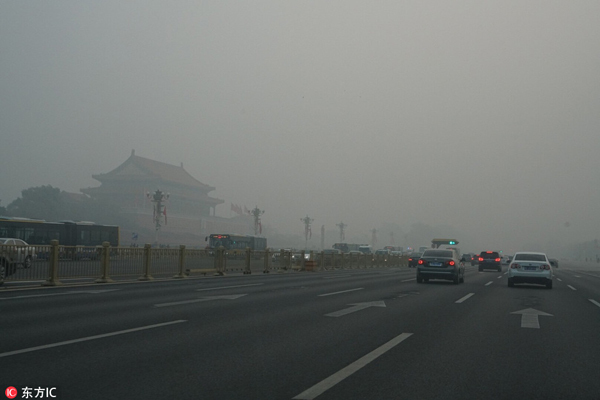End tacit consent to pollution
 |
|
The Ministry of Environmental Protection recently made public some typical cases of severe pollution, including the polluting by a pharmaceutical company in Hulun Buir in North China's Inner Mongolia autonomous region. |
The Ministry of Environmental Protection recently made public some typical cases of severe pollution, including the polluting by a pharmaceutical company in Hulun Buir in North China's Inner Mongolia autonomous region.
Local residents have repeatedly reported the company to different levels of the environmental protection bureau in the region since 2013, and nearly 30 administrative punishments have been meted out as a result, but the company did not properly address the pollution until a central environmental inspection team from the Ministry of Environmental Protection intervened in July and issued a rectification mandate.
The fact that local residents' frequent complaints about the drug company's pollution failed to get enough attention until the intervention from the top environmental authorities demonstrates that local governments are willing to protect polluters rather than the environment when they are big contributors to the local economy and large taxpayers. Indeed, large contributors to the local GDP and government coffers usually enjoy supportive policies and thus are immune from requirements for pollution control.
For example, the administrative punishments given by local environmental watchdogs to the pharmaceutical company in the past years looked somewhat relentless in their intensity, but such law enforcement was more like a tacit "deal", with the company paying some money as fines in exchange for "permission" from the local authorities that it could continue discharging pollutants.
Yet any penalties given by the authorities, such as fines, should be regarded as an instruction that they should stop polluting.
If collecting fines is mainly used by local governments as a source of increased revenues, then it will be difficult for local governments to overcome their tendency to tacitly consent to pollution.
Only by abandoning the economic growth before all else development approach, can local authorities really avoid sacrificing the environment in the name of economic development.--Beijing Times









